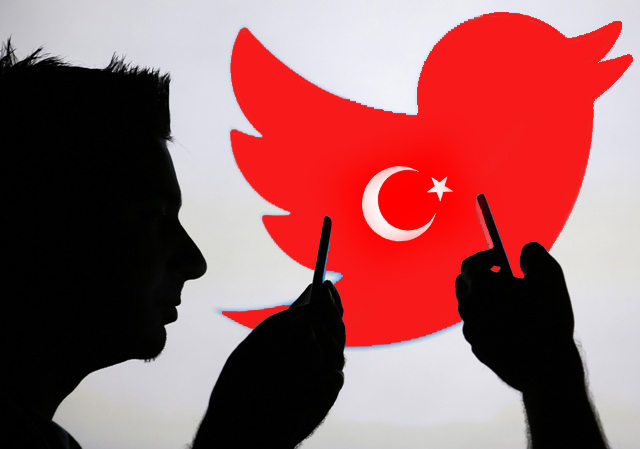
Prime Minister Recep Tayyip Erdogan ordered the block on March 20 in the lead-up to last Sunday's key local elections, in which his party won sweeping wins despite online allegations of corruption.
On Wednesday Turkey's Constitutional Court unanimously ruled that the Twitter ban was a breach of free speech, and ordered the communications ministry and telecommunications authority TIB to reverse it "with immediate effect".
The US-based micro-blogging service reacted quickly after the court ruling, tweeting: "We welcome this Constitutional Court ruling and hope to have Twitter access restored in Turkey soon."
But although the ruling was published Thursday morning in Turkey's Official Gazette, by mid-morning the service still remained unavailable in Turkey.
Sezgin Tanrikulu, a lawmaker for the main opposition Republican People's Party, said he would lodge a complaint unless the government abides by the court ruling, warning that defying it "would mean an abuse of power".
Tanrikulu - who was among the group that had lodged the complaint with the Supreme Court - warned that the ruling is "binding for everyone, including Prime Minister Recep Tayyip Erdogan, who does not recognise the law".
President Abdullah Gul, a regular user of Twitter, also said the ban on Twitter as well as on video-sharing service YouTube should be reversed.
"The bans on Twitter and YouTube now need to be lifted. I've expressed this to the minister and to the authorities," Gul was quoted as saying by Hurriyet newspaper on Thursday, while on a visit to Kuwait.
A US State Department spokeswoman had Wednesday told a regular Washington media briefing: "If there has been a court decision, we think it needs to be implemented quickly, as quickly as possible".
EU Enlargement Commissioner Stefan Fule tweeted: "Good news for freedom of expression in Turkey: Constitutional Court orders lifting of Twitter ban. Looking forward to swift enforcement!"
But a lawmaker from Erdogan's ruling Justice and Development Party (AKP) suggested Thursday that the court ruling may not be implemented immediately.
"It is only about individual complaints to the Constitutional Court," Mustafa Sentop told CNN-Turk television. "We will evaluate the verdict."
TIB declined to comment when contacted by AFP.
Since December, Twitter had been used to anonymously release a spate of audio recordings that purported to expose corruption involving Erdogan's family and his political and business allies.
The ban has been widely circumvented by Twitter users, who instead sent tweets via text message or by adjusting their Internet settings.
1732434981-0/BeFunky-collage-(10)1732434981-0-405x300.webp)





1732428810-0/Copy-of-Untitled-(3)1732428810-0-270x192.webp)
1732425487-0/BeFunk_§_]__-(42)1732425487-0.jpg)









COMMENTS
Comments are moderated and generally will be posted if they are on-topic and not abusive.
For more information, please see our Comments FAQ